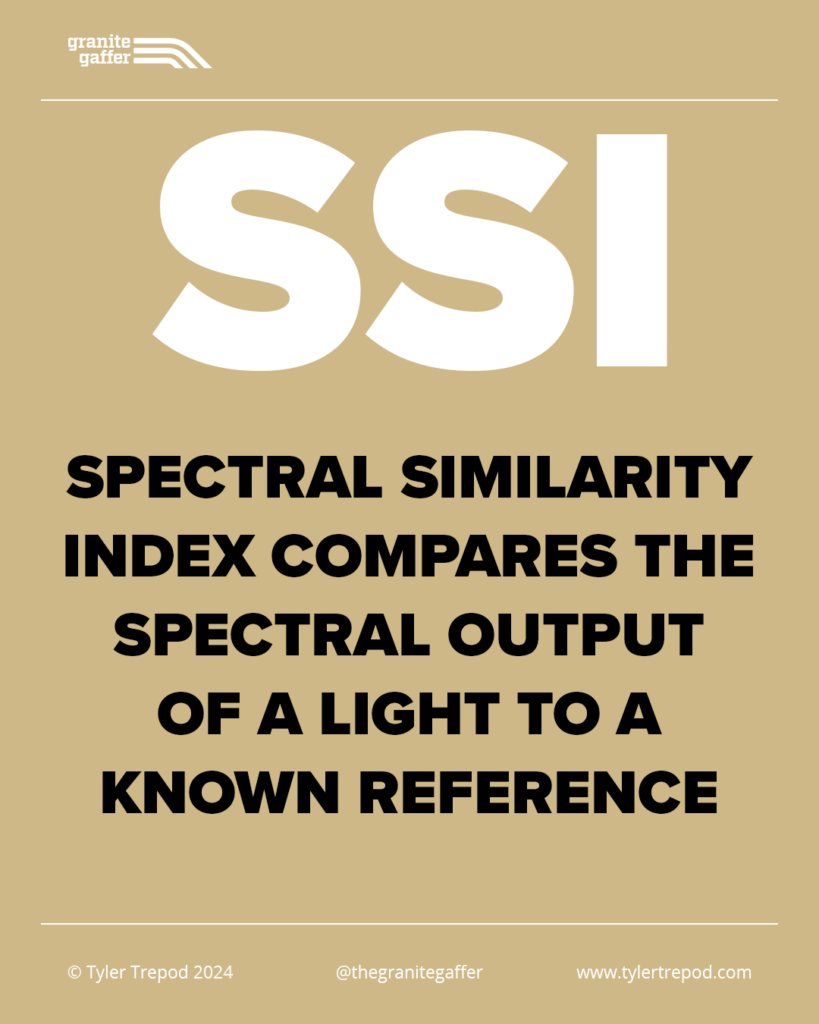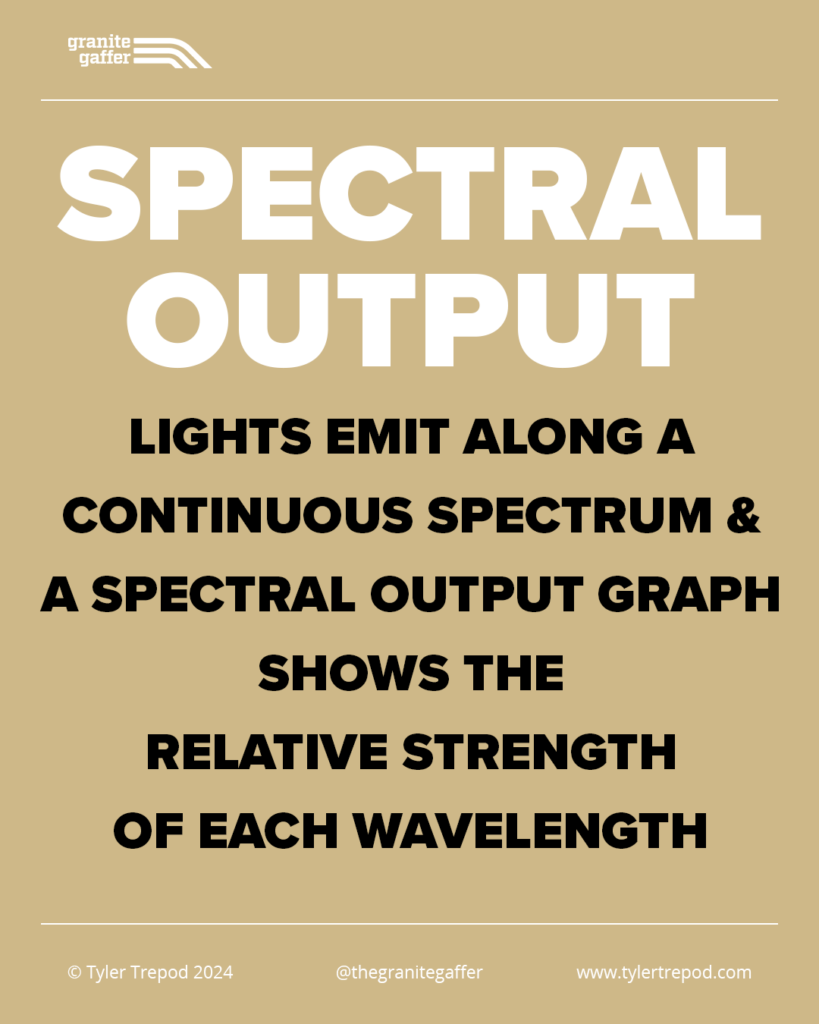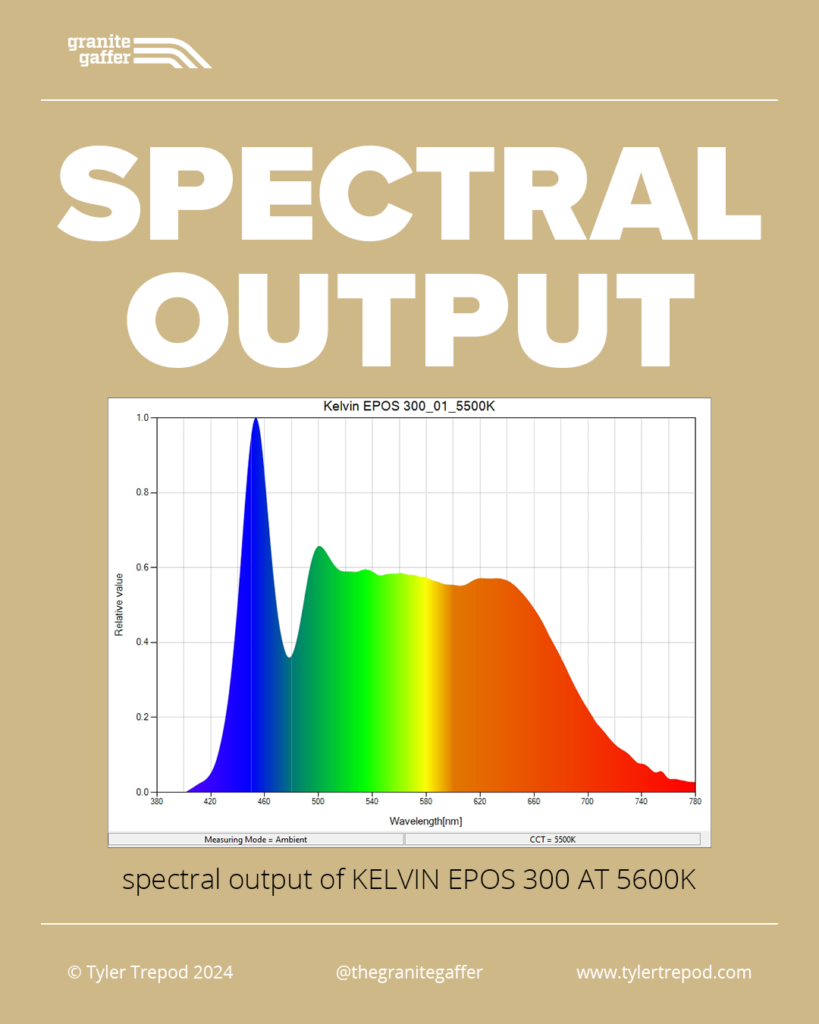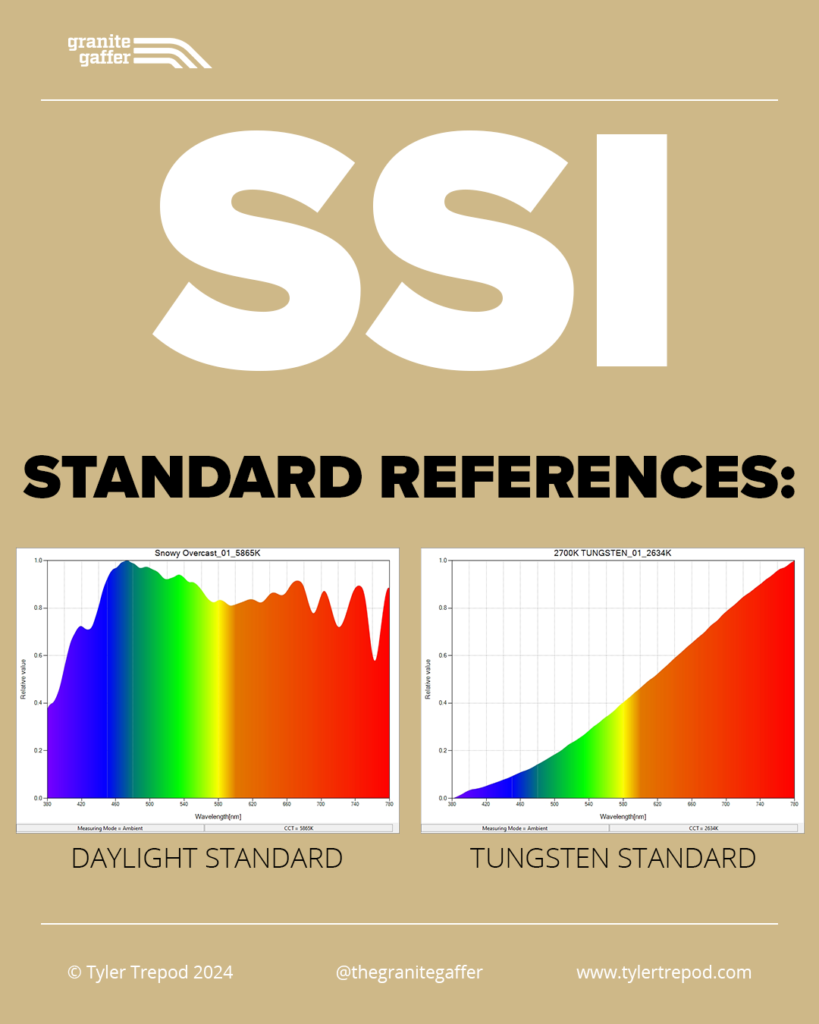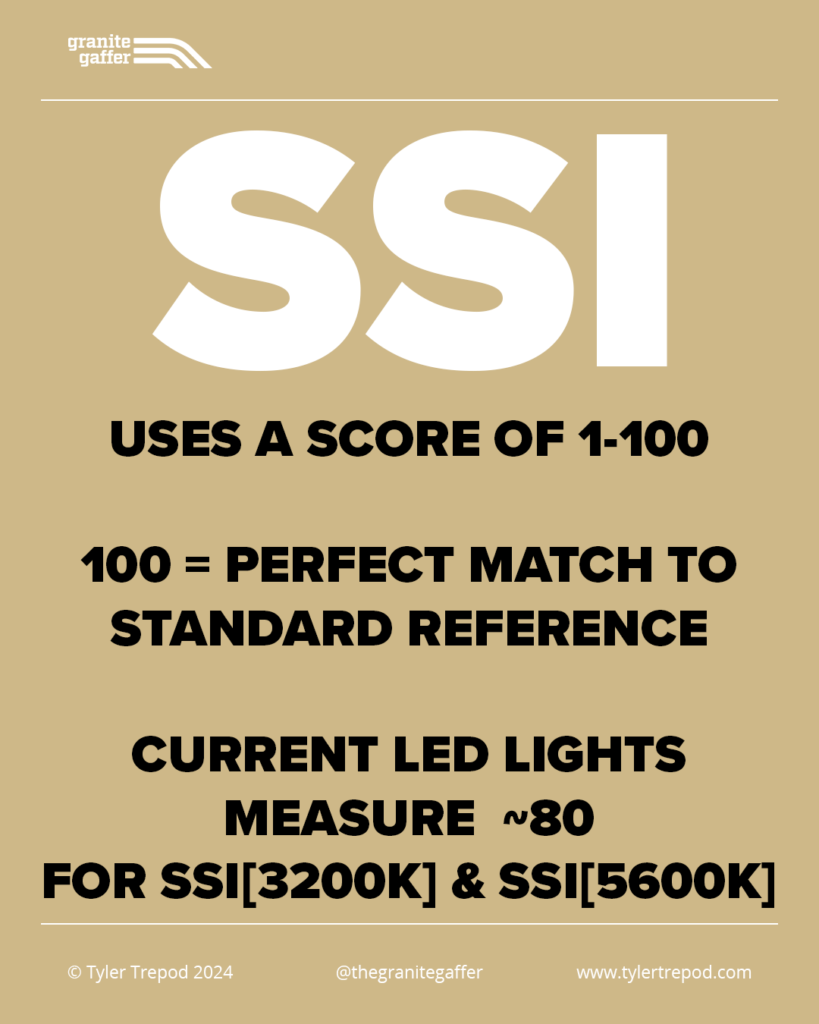guide: SSI
SSI, or spectral similarity index, has been the most recent development in assessing a lights color rendering capabilities.
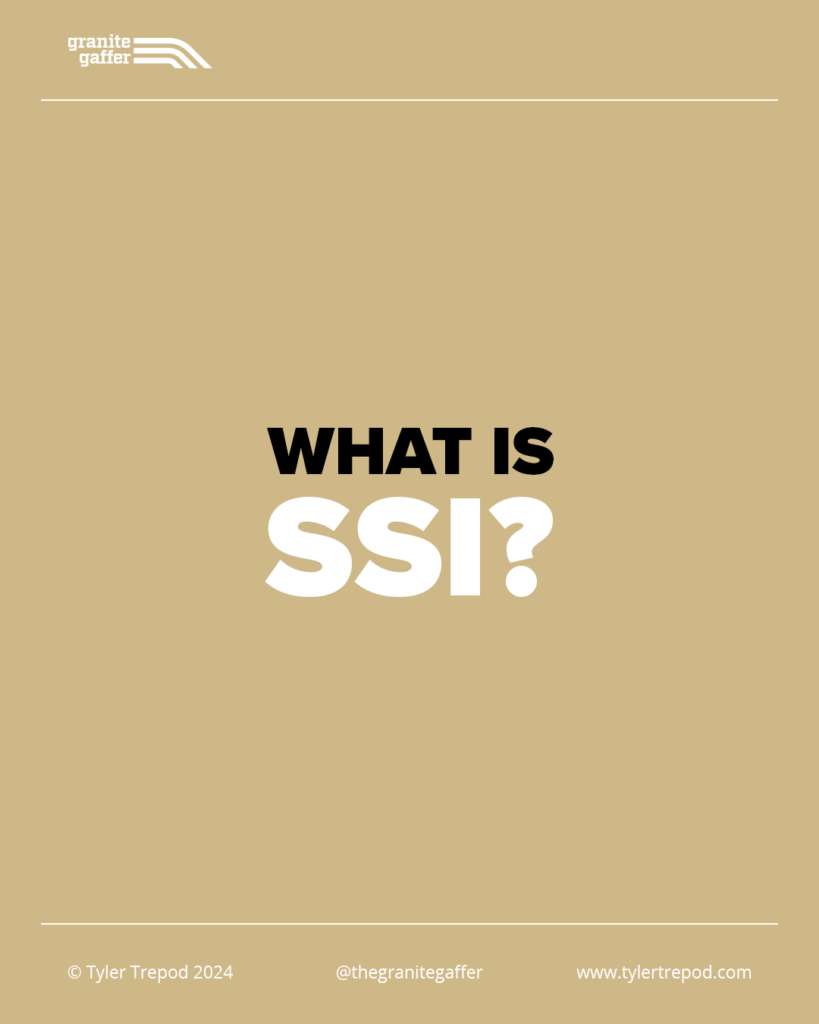
summary
SSI works by first capturing the spectral footprint of a light, which is displayed as an XY graph of relative strength vs. wavelength.
Some statistical analysis is then done to compare this spectral footprint with that of two known standards, either a black-body radiation at 3200K (tungsten comparison) or a daylight balanced standard at 5500K.
A score of 1-100 is then determined based on how similar the footprint is to the standard. 100 is bang on, anything below 75 is probably going to cause some color rendering difficulties with certain hues.
The coolest thing about SSI though is you don’t have to compare to just known standards. I can take two lights from two different manufacturers, compare them with SSI, and see how well they’ll work together to light a scene! I use this to blend lights from Aputure, Nanlux, Godox, Kelvin, Astera, Litepanels, etc. all the time!
The comparison works the same way, a score over 80ish generally means the lights should play well together, anything below that and you may want to see if there are two more similar lights for your scene!
